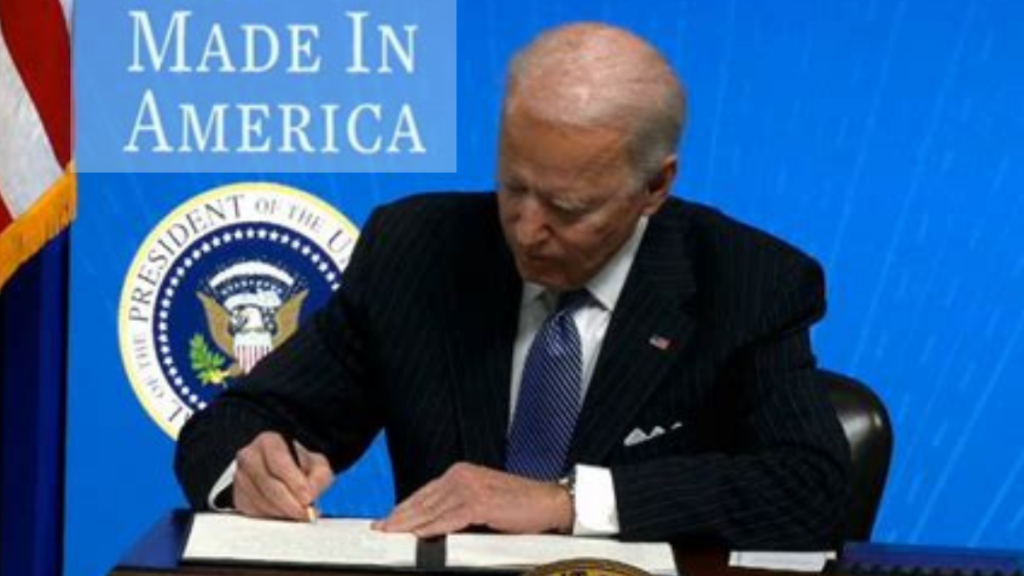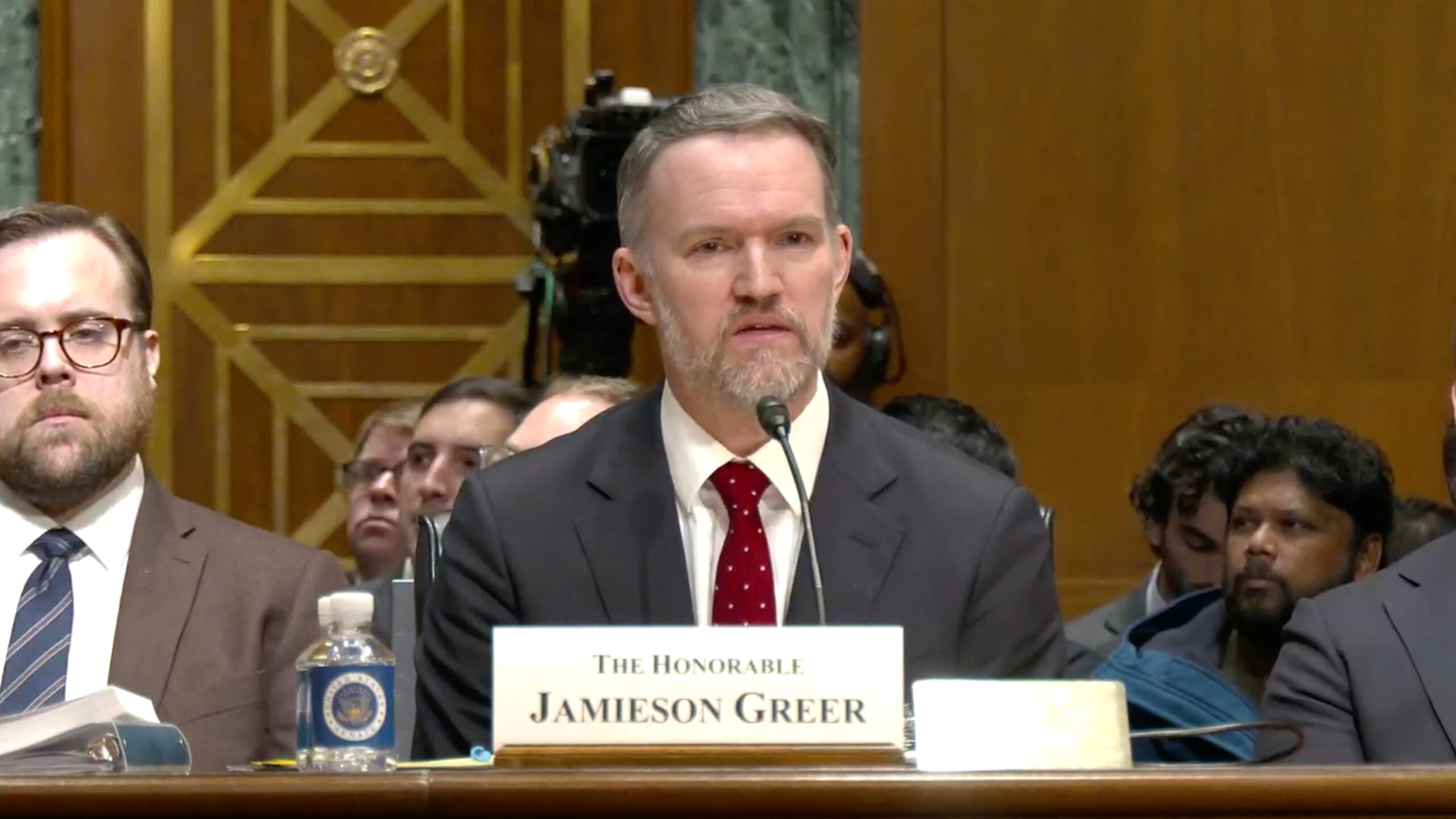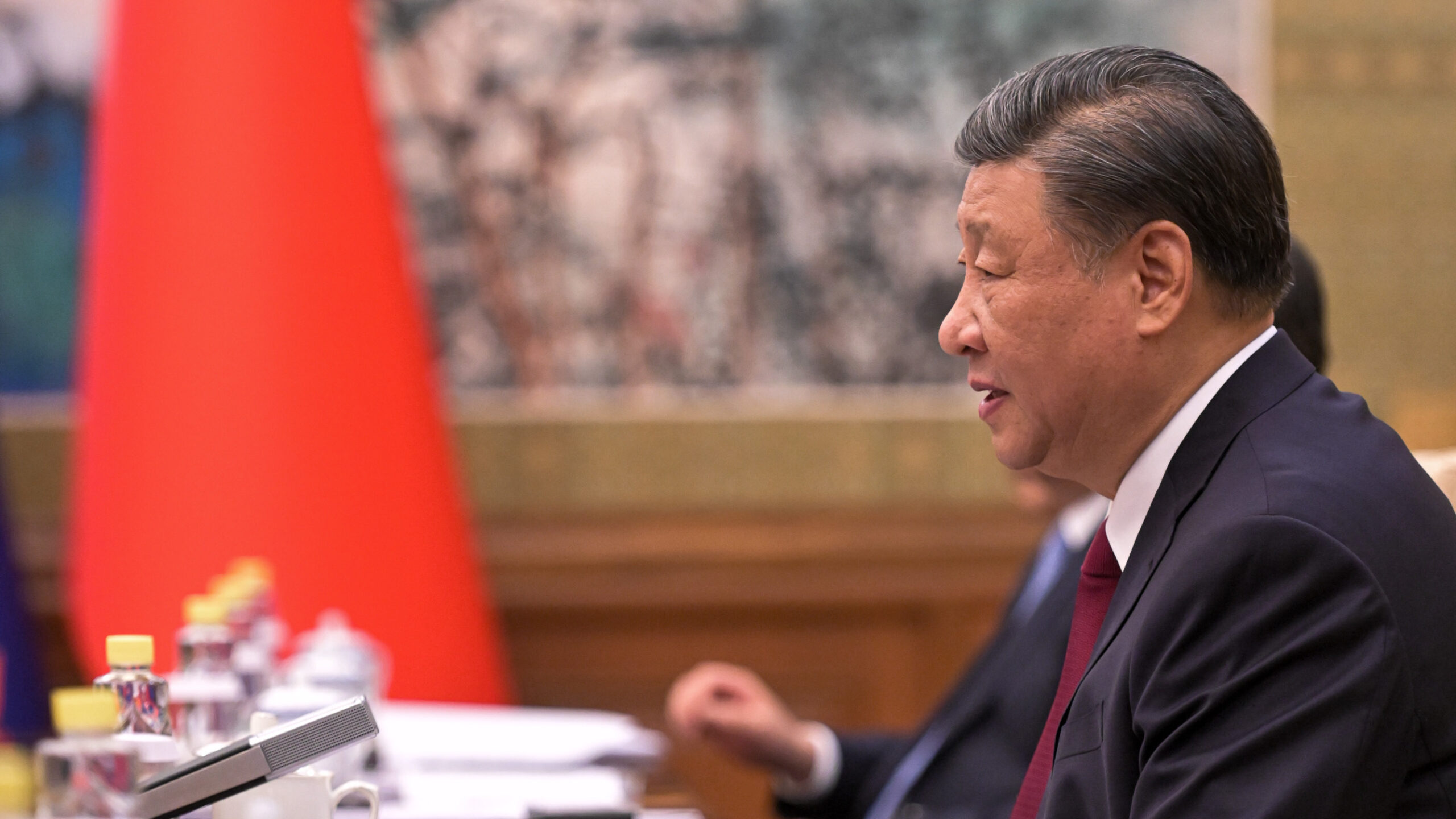CPA sent the following letter to President Biden asking that he take into consideration three suggestions to ensure the strongest Buy American provisions possible.
Dear President Biden:
The Coalition for a Prosperous America (CPA) would like to reiterate our thanks following our press release last week supporting your Buy American Executive Order (EO).[1] Your emphasis on Made-in-America is deeply appreciated by domestic producers.
As you work to implement this executive order, we kindly offer three suggestions for your consideration.
First, the inclusion of a job supported activity test could easily be used by multinationals and importers to frustrate your goals. Second, one Trump era final Buy American rule should not be suspended. Third, aggressive action on international domestic procurement agreements should also be considered to avoid frustrating your goals.
We believe these improvements, described more fully below, will ensure your success with the strongest possible Buy American provisions, a tremendous win for the country.
1. Introducing a “job supported activity” test can thwart Buy American
Section 8(i) of your Executive Order directs the Federal Acquisition Regulatory Council (FAR Council) to amend the Federal Acquisition Regulation (FAR) as follows:
(i) replace the “component test” in Part 25 of the FAR that is used to identify domestic end products and domestic construction materials with a test under which domestic content is measured by the value that is added to the product through U.S.-based production or U.S. job-supporting economic activity;[2]
While there is always room to improve the methods to determine which products are actually made in the USA, the “job supporting economic activity” test gives us concern. It could be used to break the connection between the product and US manufacturing workers. Creative lawyers would argue that goods with substantial imported content “supported US jobs” in logistics, marketing, or distribution.
We have added concern because the phrase “job-supporting economic activity” appears to have been coined by those supporting multinationals and importers that have long fought for off-shoring policies. For example, the Trade Partnership Worldwide, LLC (“TPW”) may have coined the phrase.[3] TPW is an economic consulting firm that generates reports hostile to Buy American for groups like the U.S. Chamber of Commerce.[4] TPW’s “job-supporting economic activity” analysis was developed for a report commissioned by the Business Roundtable,[5] a group that is also hostile to Buy American. In these reports for the Business Roundtable, TPW uses the “job-supporting” language to argue that:
“[M]ost analysts seeking to assess the impacts of trade on U.S. jobs stop with the direct and indirect impacts of exports and imports. In doing so, they miss the largest source of job-creating activity that comes from trade: the extra spending power companies, workers and consumers have in their bank accounts, spending power that generates still more job-supporting economic activity.”[6] [Emphasis added]
TPW is unambiguous about where the extra spending power comes from: “lower prices for goods and services resulting from imports”.
Their examples of “job-supporting economic activity” arise from that extra spending power resulting from outsourcing U.S. manufacturing: “The extra income is spent on other goods and services that are not traded internationally – like dinners out, pre-school or day care for one’s child, or a home renovation project.”[7]
Multinationals have also long argued that offshoring supports jobs unloading containers in our seaports, jobs loading those containers on trucks and jobs scheduling and driving those trucks. Of course domestic production requires the same jobs to have its goods distributed from the factory. More importantly, offshoring proponents ignore the jobs created by domestic supply chain sourcing of the parts and material shipped to the factory. Such outsourcing, as we all know,destroys the high quality jobs provided by manufacturing supply chains. It is so much more transparent and less confusing to simply measure the value added by domestic content and the domestic job growth will follow.
We know that your intent is not to open the door to arguments that goods made from imported components supported non-manufacturing jobs at the port of entry, trucking firms, warehouses and ad agencies are USA made. Therefore we suggest that the “job-supporting economic activity” test be abandoned as a proposal.
2. A Recent “Made in USA” Rule Should Be Allowed to Take Effect
We respectfully suggest that the FAR Council’s recent updates to Buy American be allowed to take effect as scheduled. The FAR Council recently issued a final rule that substantially increased domestic content requirements and price preferences for domestic products. See Federal Acquisition Regulation: Maximizing Use of American-Made Goods, Products, and Materials, 86 Fed. Reg. 6180 (January 19, 2021). (“Final Rule”)
This Final Rule was due to become effective January 21, 2021 and was to apply to federal solicitations issued on or after February 22, 2021. However, its implementation may now be in question,[8] pending its review pursuant to the Regulatory Freeze memorandum.[9]
While we understand the policy underlying the Regulatory Freeze, we ask that this Final Rule be allowed to take effect because it furthers your policies and eliminates the need to re-do the process.
3. Eliminating Interference from the WTO Government Procurement Agreement
We applaud and support your Buy America EO and COVID economic recovery goals. But they are severely hampered by our participation in the WTO Government Procurement Agreement (WTO GPA). The Congressional Research Service has observed, “In practice, the applicability of the Buy American Act is significantly limited by its waiver pursuant to the Trade Agreements Act.”[10] For this reason, CPA believes the most important part of your Made-in-the-USA campaign pledge was “to modernize international trade rules and associated domestic regulations regarding government procurement to make sure that the U.S. and allies can use their own taxpayer dollars to spur investment in their own countries.”[11]
During your press conference on the Buy American Executive Order, you reiterated your commitment to declaw the WTO GPA. By way of a January 19 letter to you, we stressed the urgency of tackling the WTO GPA question through prompt direction to USTR.[12] We also urged that you remove, from the scope of America’s GPA commitments, the sixteen critical infrastructure sectors[13] identified by President Obama.
On November 27, 2020, the United States sent a formal notification to the WTO GPA committee that the U.S. intended to remove certain essential medicines and critical medicinal inputs from its coverage under the agreement. Other nations have since introduced procedural complaints to delay this process. Given the reaction to the essential medicines coverage withdrawal, CPA urges you to instruct USTR to commence a U.S. withdrawal from the GPA, and then proceed to working bilaterally with America’s allies.
It is important to note that the WTO GPA also contains Hong Kong as a member. China’s annexation of Hong Kong means there is no way forward in the WTO GPA so long as China is a member.
Finally, the WTO GPA withdrawal process is especially warranted as Congress is preparing a $1.5 trillion infrastructure package. A stronger COVID recovery can be achieved without being forced to spend taxpayer money on foreign manufactured goods.
Thank you for your consideration of these issues as you work to Build Back Better and implement a strong Buy American policy. CPA stands ready to assist and work with your administration as you build on this latest executive order.
Sincerely,
Zach Mottl, Chairman
Michael Stumo, CEO
[1] “CPA Supports Biden Executive Order on Buy American”, January 26, 2021, available athttps://www.prosperousamerica.org/cpa_supports_biden_executive_order_on_buy_american
[2] Executive Order on Ensuring the Future Is Made in All of America by All of America’s Workers, available athttps://www.whitehouse.gov/briefing-room/presidential-actions/2021/01/25/executive-order-on-ensuring-the-future-is-made-in-all-of-america-by-all-of-americas-workers/
[3] A Google web search of the precise phrase “job-supporting economic activity” covering 1/1/2010 to 1/1/2020 found the only instances of that phrase on the internet to have come from TPW’s reports.
[4] See, e.g., U.S. Chamber of Commerce, “The Cost of Buy American Mandates on American Jobs” (February 17, 2010), pg. 8-11, for a paper by TPW principal Laura Baughman titled “Imposition of Buy American Provisions of the Recovery Act: The Cost for American Workers and Companies”, available at https://canons.sog.unc.edu/wp-content/uploads/2010/11/100217_buyamerican.pdf
[5] Trade Partnership Worldwide, LLC, “Trade and American Jobs: The Impact of Trade on U.S. and State-Level Employment”, Prepared for Business Roundtable (March 2018), available at http://tradepartnership.com/wp-content/uploads/2018/04/Trade-and-American-2018-FINAL-copy.pdf
[8] King & Spalding, Client Alert: “President Biden Signs Made-in-America Executive Order”, January 26, 2021 (The Final Rule “may not be implemented as recently published in final form”), available at https://kslawemail.com/408/7531/uploads/ca.pdf
[9] https://www.whitehouse.gov/briefing-room/presidential-actions/2021/01/20/regulatory-freeze-pending-review/
[10] Congressional Research Service, “Domestic Content Restrictions: The Buy American Act and Complementary Provisions of Federal Law” (Sept. 12, 2016), p. 7, available at https://crsreports.congress.gov/product/pdf/R/R43354/8
[11] The Biden Plan to Ensure the Future Is Made in All of America by All of America’s Workers, available at https://joebiden.com/made-in-america/
[12] “CPA Urges Biden to Remove Sectors from WTO Procurement Agreement” (January 19, 2021), available athttps://www.prosperousamerica.org/biden_remove_sectors_from_wto_procurement_agreement
[13] The Critical Infrastructure Sectors list can be found at the Cybersecurity and Infrastructure Security Agency (CISA) website. https://www.cisa.gov/critical-infrastructure-sectors













